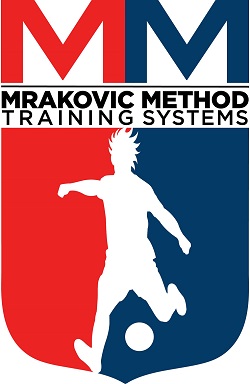Successful Player Development Youth Soccer Expert on What Makes The Difference
One can hear Mario Mrakovic’s encouraging voice clear across the 114-acre fields of Surf Cup Sports Park in Del Mar, CA — With an enormous passion for helping young kids learn the game of soccer and an attention to detail that is unrivaled, Mrakovic inspires his players to be their best.
What’s Important? The details of the proper technical execution.
The experts all agree — the best coaches should be coaching the youngest players to make sure they develop proper technique and a deep love for the beautiful game. Few coaches can match the passion or the attention to detail that Mario Mrakovic brings to the pitch.
Known for his incredibly high success rate of training young soccer players who go on to play at the highest levels in the U.S. Soccer Development Academy or called up for Youth National Team trainings, Mrakovic is a vivacious, captivating and inspiring coach who makes a difference every day.
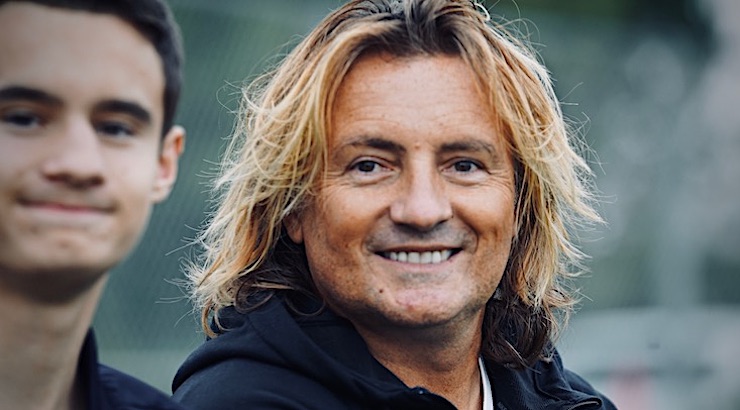
Mrakovic is the San Diego Surf SC‘s Jr. Academy Boys Youth Director U6, U7, U8 and, U9. One of the most talented and dedicated youth soccer trainers, Mrakovic is also the founder of San Diego Futsal. Mrakovic holds a U.S. Youth Soccer “A” Coaching License, Coerver Youth Soccer Coach Diploma.
Croatia-born Mrakovic fell in love with soccer when he himself was a young boy and his lifelong love affair with the game has never lessened. Mrakovic infuses those he talks to with his joy for the game of soccer.
Player Development Needs To Start When Players Are Young

SoccerToday’s Editor in Chief, Diane Scavuzzo interviewed Mrakovic on what is the “Mrakovic Method” and why he believes the players he has trained are so successful.
Diane Scavuzzo: When did you first start playing soccer? How old were you?
Mario Mrakovic: I grew up in Zagreb, Croatia and started playing and, yes, coaching on the streets at age 4. I was the only kid on the block who owned a real leather soccer ball.
My father was a soccer coach, so I was, of course, one too.
I followed him and his 6v6 teams everywhere and never missed a game.
I started playing at F.C. Zagreb Youth Academy when I was 7 years old — and except for a brief year at Dinamo Zagreb Academy when I was 12 years old, I stayed at F.C. until I was 15 years old when I transitioned to playing 6v6.
Diane Scavuzzo: Did you have a nickname when you were growing up?
Mario Mrakovic: Yes, my nickname as a player has always been “Tehnicar” — In English, this is the word for Technician, referring to a player who is skilled in the soccer technique. And, I would never stop running during the games, as I had an abundance of energy and endurance.
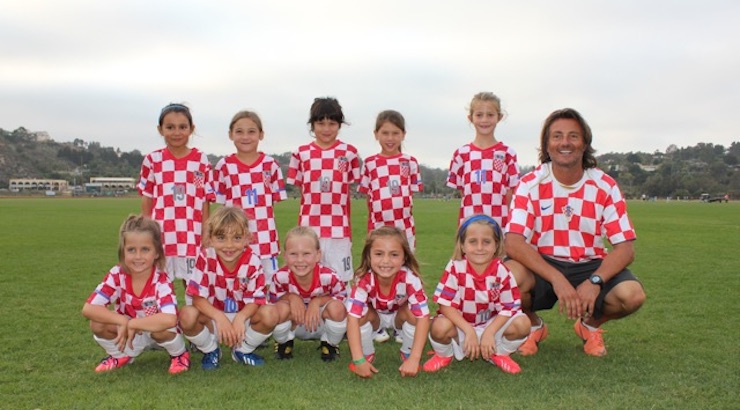
Diane Scavuzzo: What position did you play?
Mario Mrakovic: I was a midfielder.
Diane Scavuzzo: When did you start coaching? How old were you?
Mario Mrakovic: I always coached my local small-sided teams that included my friends and peers, even when I was a young player.
As teenage boys, we would participate in local Adult 6v6 and 7v7 leagues and tournaments and I would coach the team. I always preferred small-sided games over 11v11 and this is one reason I have kept close to Futsal.
Diane Scavuzzo: How many players have you coached?
Mario Mrakovic: Tens of thousands.
I started soccer youth coaching officially in 1993 in Boston and continued in 1995 when I moved to San Diego.
I have coached kids at clubs, private trainings, clinics, and of course camps.
To this day, I still have the same or greater spark in me and the sense of adrenaline kicking as when I first started coaching.
I love to teach and love to make a difference.
But just to be clear, I always have a winning mindset in development AND competition. I never have a sense that coaching is a job or work. To me, it is a calling.
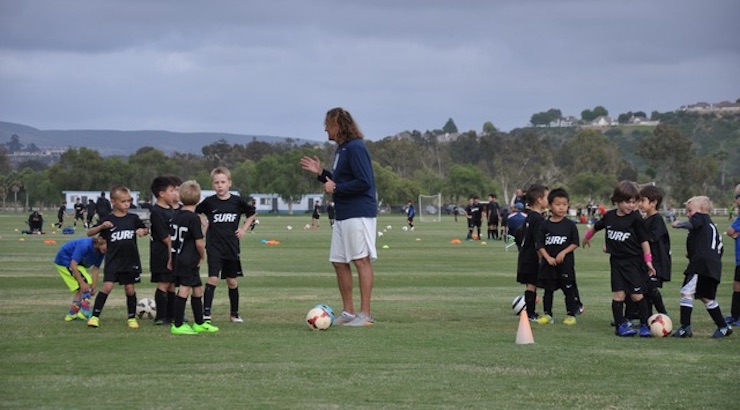
Diane Scavuzzo: When did you start futsal training in Southern California? When did you kick off San Diego Futsal?
Mario Mrakovic: I believe futsal is the bridge between what youth players in America were getting and what they needed, and I saw futsal as the proving ground as well as the accelerant for many advanced and unconventional training methods that I had been developing as a youth coach.
The speed, the mental quickness, the technical sophistication – all of this was new to the U.S. youth soccer community. In 1995, I started futsal training, clinics, camps, tournaments and leagues at Alliant University, which gave birth to futsal in San Diego – and I have trained thousands of kids at Alliant through San Diego Futsal.
Diane Scavuzzo: What was the response back then?
Mario Mrakovic: After my teams won 7 National titles, only then did people sit up straight and take notice. In the beginning, most of the people thought that I made up the sport, that it was my personal gig.
The players enjoyed it, but always struggled to play real futsal and instead played the game like they played soccer but on a smaller field.
There was not much futsal quality. But the persistent players picked it up and got much better to the point that we started to take teams to Futsal Nationals and eventually brought home the 7 National titles.
Brian Iloski who was drafted in the MLS SuperDraft and now plays as a Midfielder for Legia Warsaw, Poland was on one of those Futsal teams – and he ruled the court.
Diane Scavuzzo: At what age should youth soccer players start futsal training?
Mario Mrakovic: I recommend age 4, or at a time that a player is able to follow instruction.
Kids are like sponges. They learn things fast. The trick is to make sure they learn from the beginning.
Practice doesn’t make perfect; only perfect practice makes perfect.
If you ingrain errors, they have to be erased before the right way is ingrained, which takes double or triple the time.
When players learn the proper techniques, balance and overall coordination from Day 1, it becomes much easier to ramp up their skills.
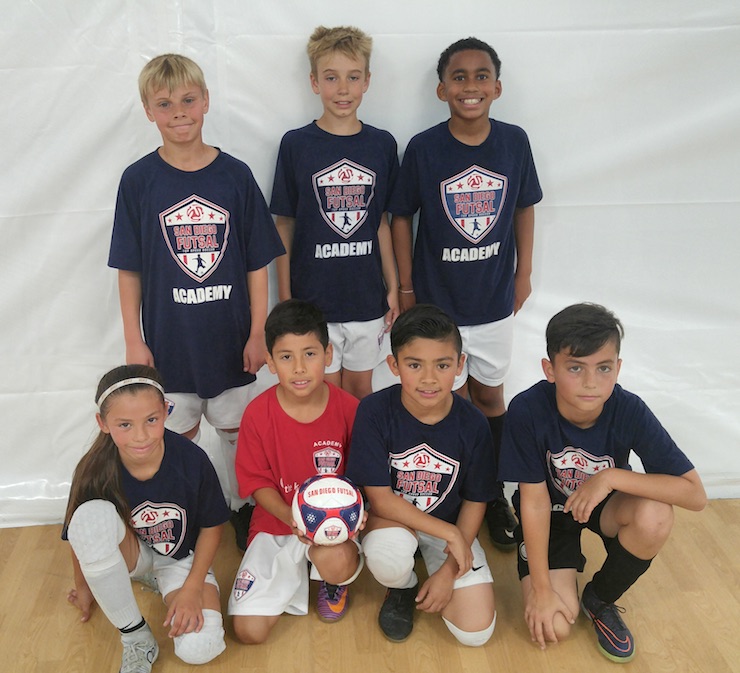
Diane Scavuzzo: What makes your Mrakovic Method Training Systems special and different from other soccer skills programs?
Mario Mrakovic: Teaching technique – NOT coaching skills.
Attention to detail, it is the painstaking and careful design of every training moment.
It’s not a one-idea system that dropped from the sky one day. It has taken years of experimentation, trial & error, and at times, abandoning things that I thought were genius that just didn’t work with real kids.
A coach needs to understand every meticulous step of a movement – the mechanics, the balance, the eyes, the posture, hand and arm placement – with or without the ball, and to be able to explain in memorable word pictures exactly what must be done.
But that is just the beginning.
We then extend training until the player does make a mistake in execution — unlike traditional methods of accepting imperfections and trying to move through them and train them out later.
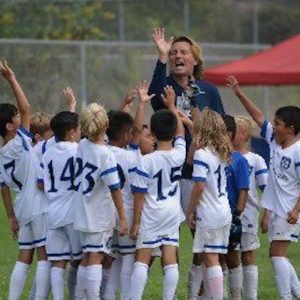
Diane Scavuzzo: What is your teaching technique?
Mario Mrakovic: We want to induce a permanent change in the brain — optimizing soccer skill memory.
To develop a new motoric foundation, we isolate the bits and pieces to the simplest of cores, so that the player can recognize it and repeat it using acquired coordination under the direct influence of his or her control.
Visualization, slow motion, and self-verbalization are some of the training methods to achieve technical mastery successfully and constantly.
We don’t implement grandiose “soccer drills” to make players better, we use our teaching techniques to educate, develop and produce players that make the “soccer drills” grandiose.
Diane Scavuzzo: How does futsal training help develop better youth soccer players and improve technical development and focus?
Mario Mrakovic: Speed, touches, and action. The game is played on a hard surface (typically wood or asphalt) where there is no grass to slow down the ball.
The ball is which is also heavier, less lively in the air than a soccer ball and doesn’t bounce around as much.
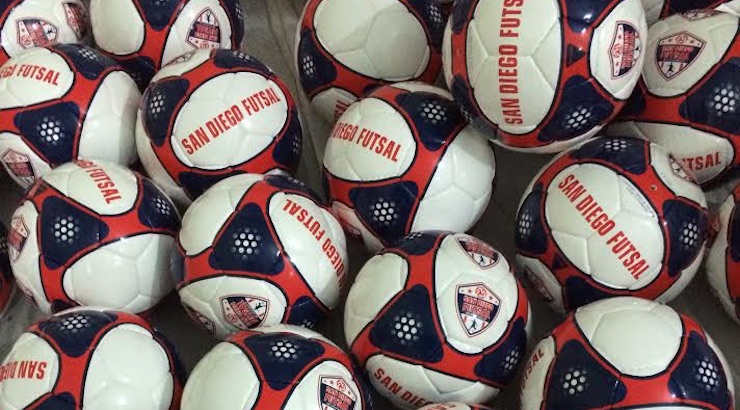
The field and goals are smaller so there is less time to play the ball, less space to maneuver, and there are only five players per side including the goalie.
There is no time wasting and the ball must be brought back into play in a matter of 4 seconds, otherwise, it is awarded to the other team.
More speed, more touches, more action equals more technical, tactical and smarter players with better and quicker reflexes.
Futsal is cheating in a sense, as the players get so much better training than soccer players. There is no comparison. Brazil, Spain, Argentina, Uruguay, Portugal, Croatia all know of this.
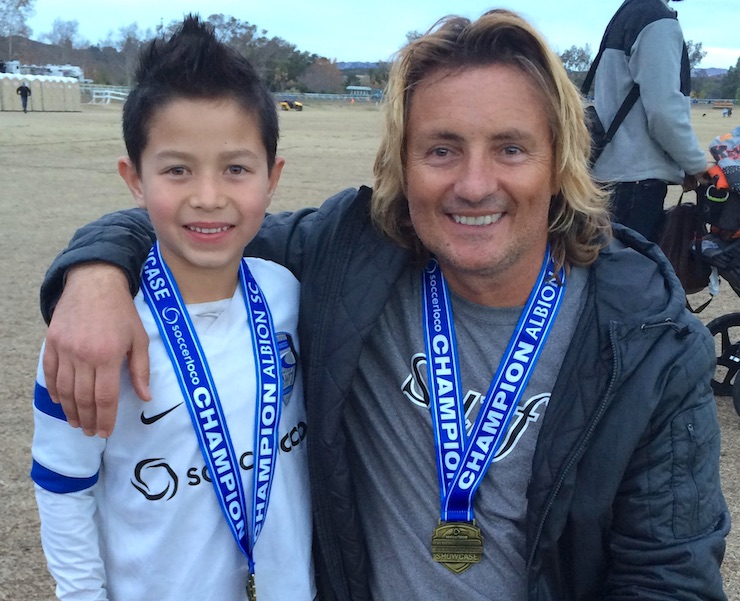
Diane Scavuzzo: What do you do at San Diego Surf SC?
Mario Mrakovic: I am the San Diego Surf SC‘s Jr. Academy Boys Youth Director for the U6 – U9 Boys Program.
Surf SC is San Diego’s premier youth soccer club and has won 10 National Championships and I have trained many of the players who are now in the Development Academy.
Being the Jr. Academy Director is a new role which I started just this season. It is what I always wanted — to have players for an extensive period of time. This way, I can make a true difference in their coordination and technical development.
While I strive to win on the field every single time, player development always comes first and foremost, and that goes without saying.
I work relentlessly to teach the kids to always do the right things.
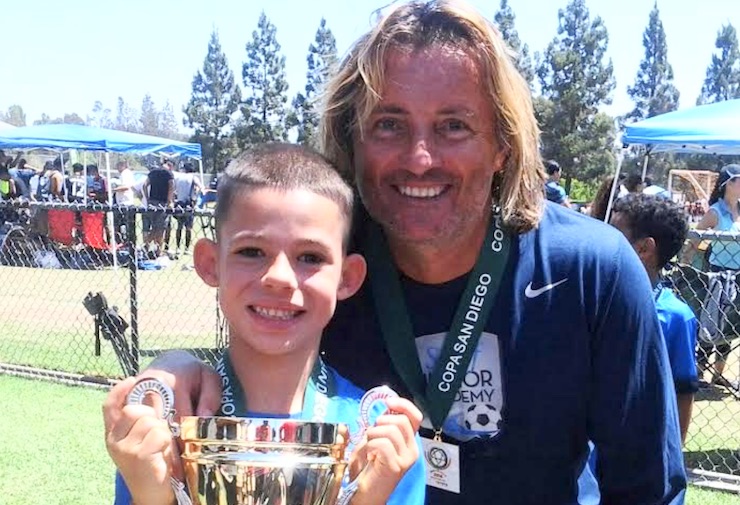
Diane Scavuzzo: What kind of results does your training produce?
Mario Mrakovic: For the past 10 years the teams that I have taken to the leagues and tournaments win on average 90% of their games.
I am not recruiting high skill level players. These are young players — The only reason for our high level of success is very simple – TRAINING.
Diane Scavuzzo: What is one of the greatest challenges with American youth player development?
Mario Mrakovic: In a word, coaching.
Most youth players learn the game in conventional soccer practices that have changed little in decades.
A conventional soccer practice focuses primarily on developing the team to operate as a winning unit is a breeding ground for individual players to unknowingly pick up ingrained flaws in their individual technical skills.
Recent changes in U.S. Soccer recognizes these coaching flaws and responds through structural changes in games for younger players, but the root of the problem is often outdated coaching methods — and, a failure to realize there’s a better way.
Coaching is hard work that requires obsession, massive creativity, and relentless refinement and attention to detail.
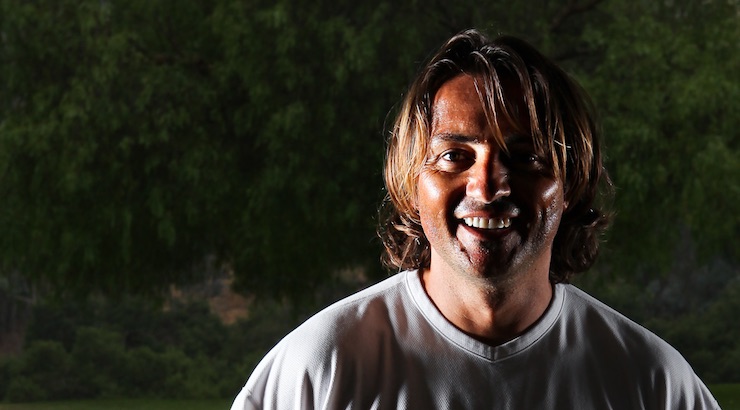
A ‘master’ youth soccer coach spends years or decades learning how players hear and absorb technical skills, and has invented hyper-efficient activities and exercises that are fun but require perfection and limit downtime for all players.
A great youth soccer coach uses age-appropriate slogans and metaphors that are proven through experience to resonate and “stick” with the age group.
Diane Scavuzzo: If you had a magic wand, what would be the one thing you would change in youth soccer?
Mario Mrakovic: I would retool the customary soccer training – which mostly focuses on team concepts – to incorporate advanced techniques for player development.
It is crucial to use a method-driven process of studying and teaching soccer.
We must develop players with a quick and complex execution of technical and tactical elements that becomes automatic and subconscious through repetition.
Through this process, a player can have more time to think and will make better and more creative decisions during play.
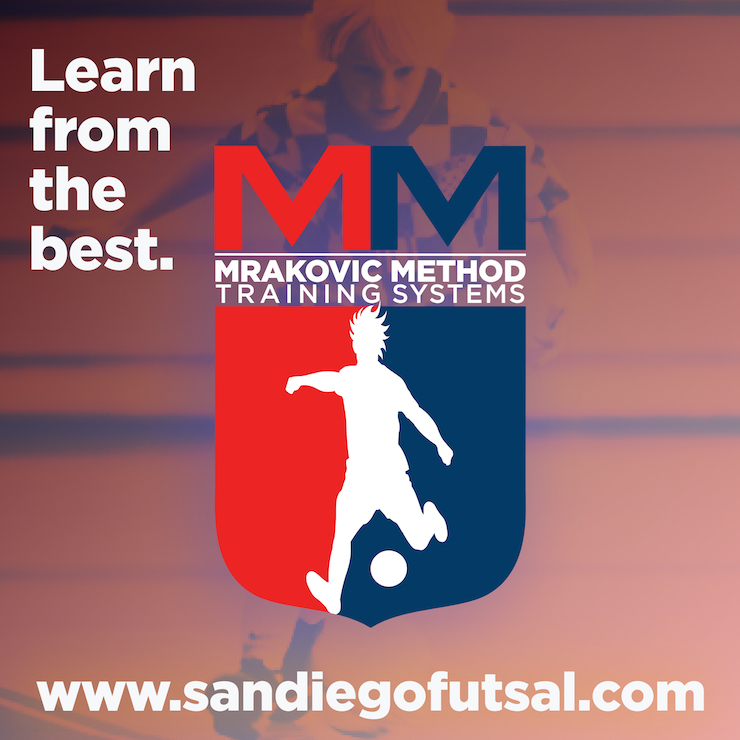
Diane Scavuzzo: What is San Diego Futsal doing right now?
Mario Mrakovic: We run our weekly clinics at Alliant University in Scripps Ranch on Sundays, at Encinitas Community Center on Mondays, and our Street Soccer clinics at 4S Ranch Sports Park on Fridays.
We also offer camps, tours, and extra individual, group, or team training.
Our San Diego Futsal teams will be competing this spring in Presidio Futsal League, 4v4 Sockers Tournament and 3v3 Scripps Tournament.
Check out San Diego Futsal on FACEBOOK and Twitter

